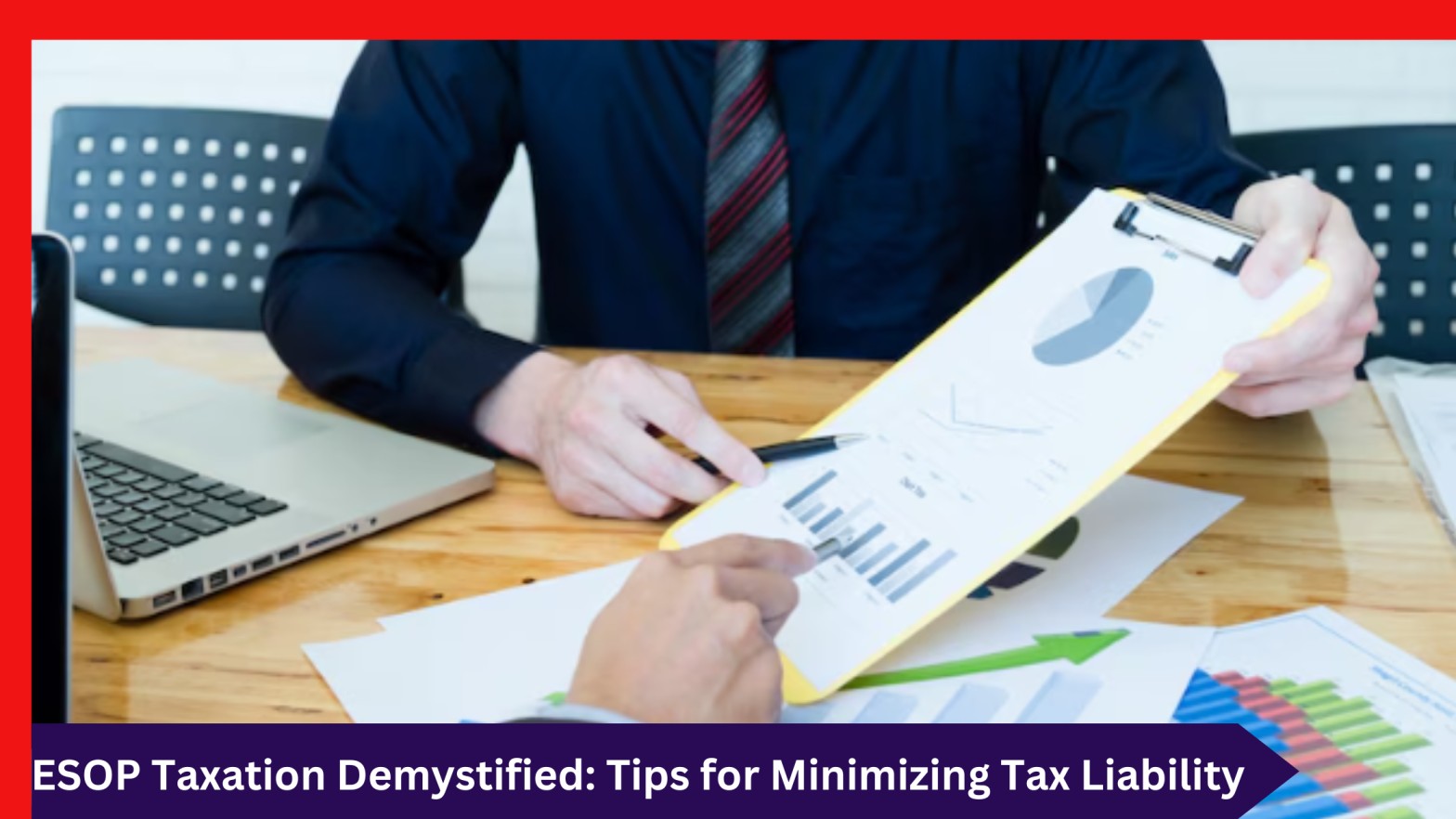ESOP Taxation Demystified: Tips for Minimizing Tax Liability

As India’s start-up culture has picked up in recent years, Employee Stock Ownership Plans have simultaneously grown in popularity. Also known as ESOPs, they serve as an instrument to incentivize, motivate, and keep the workforce engaged at all times. Employees become more aware of the different services and products offered by the company as they get a bigger say in influencing decisions around the offerings.
What is an ESOP?
A type of employee benefit plan, ESOPs let employees buy company shares at below the market rates, giving them the additional benefit of having ownership interests in the company besides being an employee. Over time, as the company valuation goes higher and more in tune with its growth, the employees benefit from increasing share prices. Typically, an ESOP grant takes place towards the end of a financial year, and making employees part owners within the organization also helps in cutting down resource churn.
How is ESOP Beneficial to All Stakeholders?
Issuing ESOPs offers several benefits both to the company and its employees.
- Tax benefits: ESOPs are beneficial to both parties from tax perspectives. Companies can reduce their tax liabilities when they make tax-deductible contributions to their ESOP trust for buying company shares. On the other hand, as an employee, you can defer tax payment on the stocks received through your company’s ESOP program until you choose to sell the shares.
- Drive positive business growth: Studies have shown that when a company adopts an ESOP program, it witnesses significantly higher annual sales as well as employment growth versus those without any such benefit plan in place.
- Additional employee benefits: Employees who become shareholders are motivated to perform better. This helps the company earn more profits, which are distributed as dividends to shareholders, benefiting employees by providing them additional income.
- Employer benefits: Besides motivating the employees to improve their output and performance, ESOPs also act as a retainer by compelling them to stay with the company over the entire vested period. This reduces employee churn and represents significant cost savings for employers.
How is ESOP Taxed?
In India, ESOP taxation occurs twice—once when the employee is issued ESOPs or chooses to exercise the option of availing this benefit and again when the shares are sold in the open market.
ESOP Taxed at Issuance
As part of an ESOP issuance, employees are allotted shares at prices lower than the fair market rates of the company. This difference between the issue price and the fair market price is taxed in the hands of the employee as a perquisite added to the annual salary income. The tax savings opportunities here are limited to the regular deductions for salaried employees under sections 80C, 80D, 80CCD, etc.
ESOP Taxed When Shares Are Sold
If you hold allocated ESOPs of foreign or unlisted companies for more than 24 months, they qualify as long-term assets, and upon being sold, the gains are taxed under long-term capital gains (LTCG). These bear a flat tax rate of 20% after indexation. However, if you choose to sell your shares within 24 months, your profits will be taxed under short-term capital gains, which are treated as regular income and taxed as per your applicable income tax rate.
Saving Taxes on ESOPs
The salaried class has limited options when it comes to saving tax. Under Section 54F of the Indian Income Tax Act, employees can reinvest their capital gains into constructing a house or purchasing property to get an exemption against capital gains tax. Under Section 54EE, they can also reinvest the capital gains into specified securities up to a maximum limit of Rs. 50 lakhs.
Employees of certain eligible start-ups can defer the payment of tax liability arising upon allotment of the shares on the exercise date. For them, the tax gets deducted within 14 days of the earlier of the following events:
- The completion of five financial years was calculated from the end of the specific financial year in which the ESOP shares were allotted.
- The date of termination of employment.
- The date on which these shares were sold.
Choose the Best Valuation Service Provider
It is important to consult an expert company valuation service provider such as RNC before rolling out an ESOP program. Our ESOP valuation services help companies analyze their ESOP models and perform valuations necessary for taxation and accounting purposes. Contact us today with your proposal, and we will help you draw up an attractive ESOP scheme that will benefit your company and your employees.
